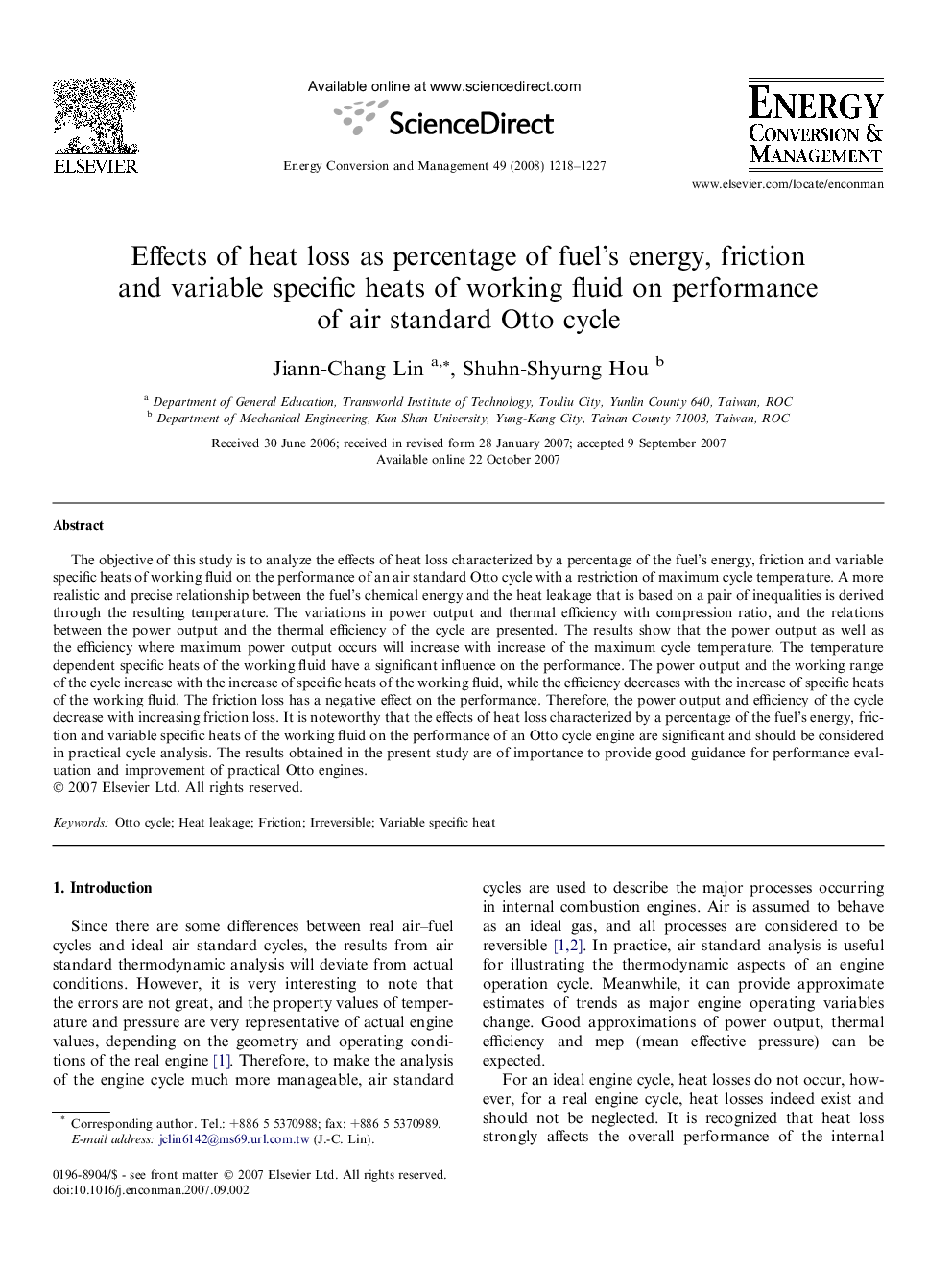| Article ID | Journal | Published Year | Pages | File Type |
|---|---|---|---|---|
| 765373 | Energy Conversion and Management | 2008 | 10 Pages |
The objective of this study is to analyze the effects of heat loss characterized by a percentage of the fuel’s energy, friction and variable specific heats of working fluid on the performance of an air standard Otto cycle with a restriction of maximum cycle temperature. A more realistic and precise relationship between the fuel’s chemical energy and the heat leakage that is based on a pair of inequalities is derived through the resulting temperature. The variations in power output and thermal efficiency with compression ratio, and the relations between the power output and the thermal efficiency of the cycle are presented. The results show that the power output as well as the efficiency where maximum power output occurs will increase with increase of the maximum cycle temperature. The temperature dependent specific heats of the working fluid have a significant influence on the performance. The power output and the working range of the cycle increase with the increase of specific heats of the working fluid, while the efficiency decreases with the increase of specific heats of the working fluid. The friction loss has a negative effect on the performance. Therefore, the power output and efficiency of the cycle decrease with increasing friction loss. It is noteworthy that the effects of heat loss characterized by a percentage of the fuel’s energy, friction and variable specific heats of the working fluid on the performance of an Otto cycle engine are significant and should be considered in practical cycle analysis. The results obtained in the present study are of importance to provide good guidance for performance evaluation and improvement of practical Otto engines.
